
We kindly inform you that, as long as the subject affiliation of our 300.000+ articles is in progress, you might get unsufficient or no results on your third level or second level search. In this case, please broaden your search criteria.


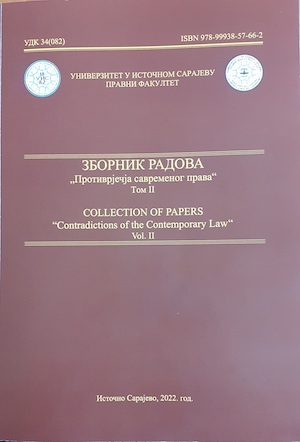
Sartre's vigilant matrix of contemplation, in the words of a distinguished Serbian intellectual Željko Simić, is that a man is imperfect being striving for perfection. Despite being illuminated by unquenchable dialects, this holistic note may serve as an impoverished description of a lavish God-given portrait of a life of a human. Academician D. Basta in one of his essay-like notes on literature pointed to illusion of charm / uniqueness of "dull Belgrade parties". From globalist and imperialist view, inevitable Hollywood attractiveness ends up in predictable / sterile plainness. Everything, man and life alike, end up closer to pain (A. Dedić). The whole path of cognizing law is illuminated with glimmers of light and obscured by dark and shadows. Law is a necessity of harmony (in its joyous form). Law and pedagogy both share the art of argumentation. Family law strives to philharmonic with accent on harmony of three or more tones of parents and their child / children. As in Constitutional law, where it is not simple to achieve harmony between notes of power and freedom, in Family law alike it takes an effort to unite in harmony sounds of devotion to freedom and freedom of devotion i.e. hymn to Christ's twofold mono existence. The law of enantiodromia. Harmonization and reconciling opposites is omnipresent. Flares and fire of contradiction is a quality of truth, not its negation. Saint Sava to his father is a biological son, but a spiritual father. All the creativity of Raphael, the prince of painting, in the words of Delacroix, lied in imitation. While experiencing his blackest depression, Sava Šumanović painted cheerful paintings of vibrant colors. Chekhov's writing desk is in the state of disorderly order. Soviet major Gagarin could have done more (to be the first man in cosmos) but could not have done less (to use cutlery properly in English court. Our Queen nobly disregarded the fact). Saint Nicholai reveals that there is no virtue without sin, no death without resurrection, no Moikovac without Kaimakchalan. Professor S. Troitsky says that the members of the Church are free because they are slaves of the law. Raskolnikov was dubbed saint devil....
More...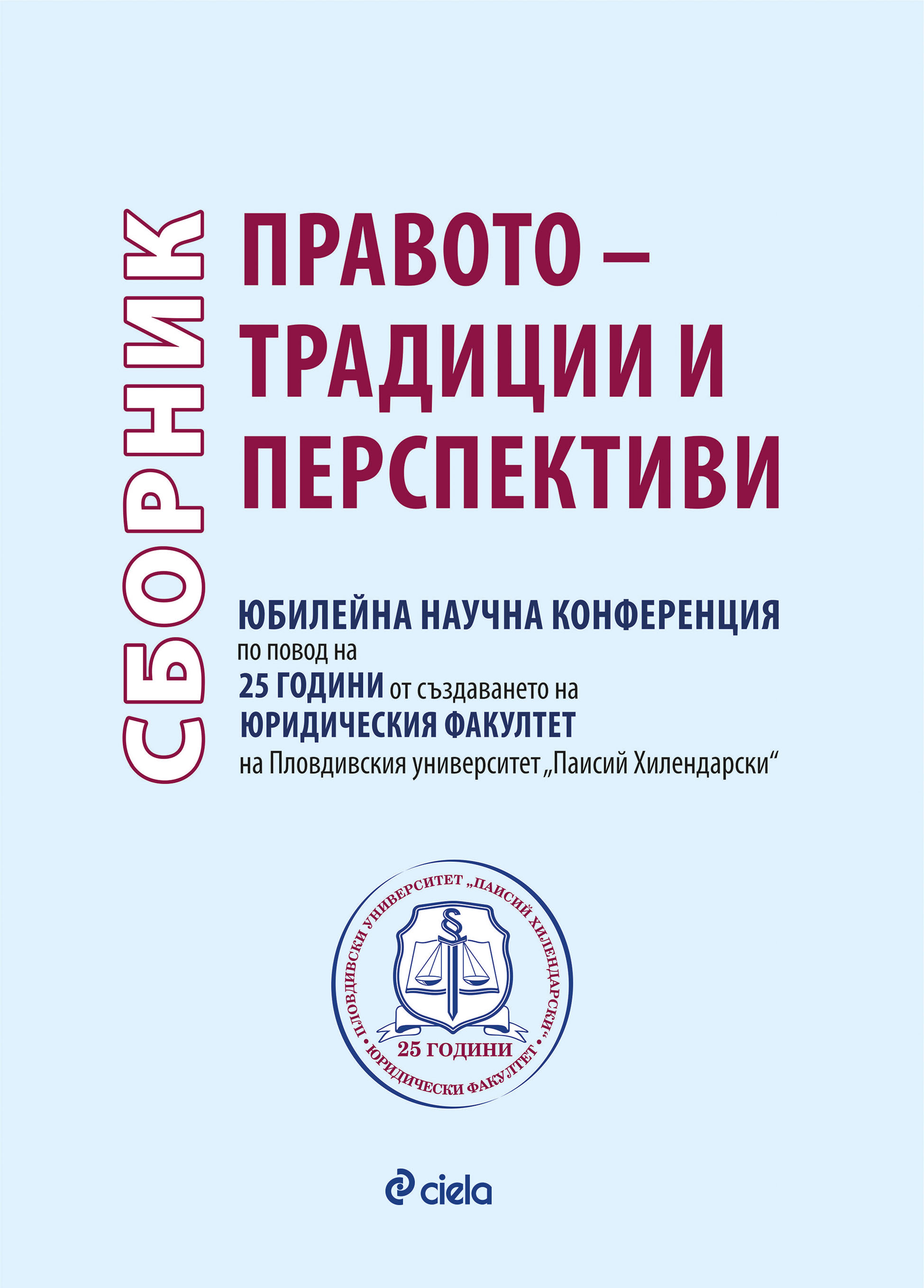
The question of the structure of legal argumentation has not been explored in the Bulgarian legal doctrine. Individual researchers deal with isolated problems concerning the structure of legal argumentation. The structure represents the internal form of organization of the system, which appears as a unity of stable regular relationships between its elements. In science, the transition from description to explanation, from phenomena to essence, coincides with the knowledge of the structural features of the deeper levels of matter. This is why the question of the structure of legal argumentation, and hence its effectiveness, is so important.
More...
Artykuł przedstawia problematykę terroryzmu ze szczególnym uwzględnieniem terroryzmu lotniczego. Rozdział ma na celu udowodnienie tezy, że ochrona praw jednostki zagwarantowana w Euro¬pejskiej konwencji praw człowieka nie zawsze jest możliwa, gdy podejmowane są działania mające na celu walkę z terroryzmem lotniczym.
More...
W rozdziale dokonano analizy wpływu wybranych aktów terro¬rystycznych w lotnictwie cywilnym na prawa człowieka. Przedstawione zostały definicje prawne ataków terrorystycznych i ich prze-ciwdziałań oraz najważniejsze dokumenty definiujące prawa człowieka w pra¬wie międzynarodowym i europejskim. Oceniono również wpływ ataków terrorystycznych na powyższe prawa, a także omówiono najważniejsze dokumenty sporządzone w celu przeciwdziałania terroryzmowi w lotnictwie oraz wpływ ataków terrorystycznych na przemysł lotniczy.
More...
W rozdziale przedstawiono istniejący stan praw¬ny w zakresie bezpieczeństwa lotnictwa cywilnego w kontekście zagrożenia terrorystycznego, poddano go krytycznej analizie i sformułowano na przyszłość wnioski, których realizacja może przyczynić się do zwiększenia sprawności organów i innych podmiotów dbających o to, by świat stał się wolny od terrory¬zmu.
More...
W tekście zaprezentowano odpowiedzialne za bezpieczeństwo transportu lotniczego w Polsce organy i podmioty realizujące zadania związane ze sprawowaniem zwierzchnictwa nad prze¬strzenią powietrzną. Ich rolą jest dbałość o sprawne, prawidłowe funkcjonowanie lotnictwa cywilnego i zapewnienie najwyższych standardów. Organy i podmioty te, określane wspólnym mianem administracji lot¬nictwa cywilnego, swoje zadania realizują poprzez świadczenie usług, wyda¬wanie decyzji administracyjnych, czasem także tworzenie norm i procedur.
More...
W tekście omówiono zagadnienia dotyczące bezpieczeństwa transportu lotniczego regulowane przez ustawodawstwo Ukrainy.
More...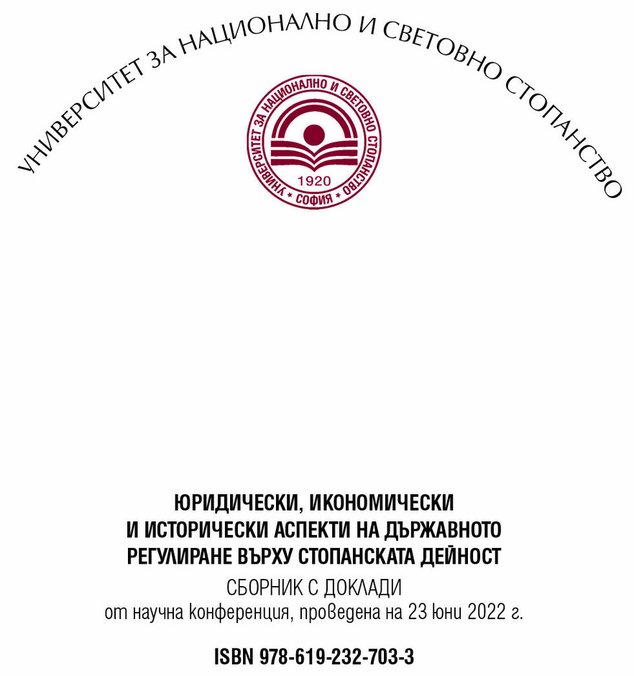
The leasing of municipal and state property is related to the realization of public interests, and in some cases to a strong social element. This has led to the creation of a separate legal regulation of lease contract for state and municipal properties. This regulation is characterized by the increased presence of the public legal element. At the same time, the effect of the general, private law norms of the lease contract contained in the Law on Obligations and Contracts is preserved. As a result, there are specifics regarding the implementation and non-implementation of lease contracts for state and municipal properties, which specifics distinguish them from the classic lease contract. The purpose of this presentation is to consider some of the features in renting out state and municipal property, arising from crossing of private and public law elements in this type of contract.
More...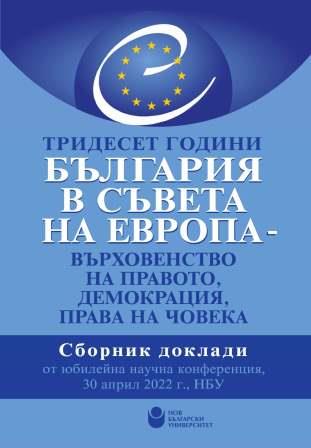
The exhibition considers the right to work as a fundamental human right and as a natural continuation of the right to dignity - in the context of international law and the national law of the Republic of Bulgaria. Some possibilities for justified restriction of the exercise of the right to work for a legitimate purpose are also analysed. In the context of the research topic; a review of part of the relevant case law of the Court of Justice of the European Union has been made.
More...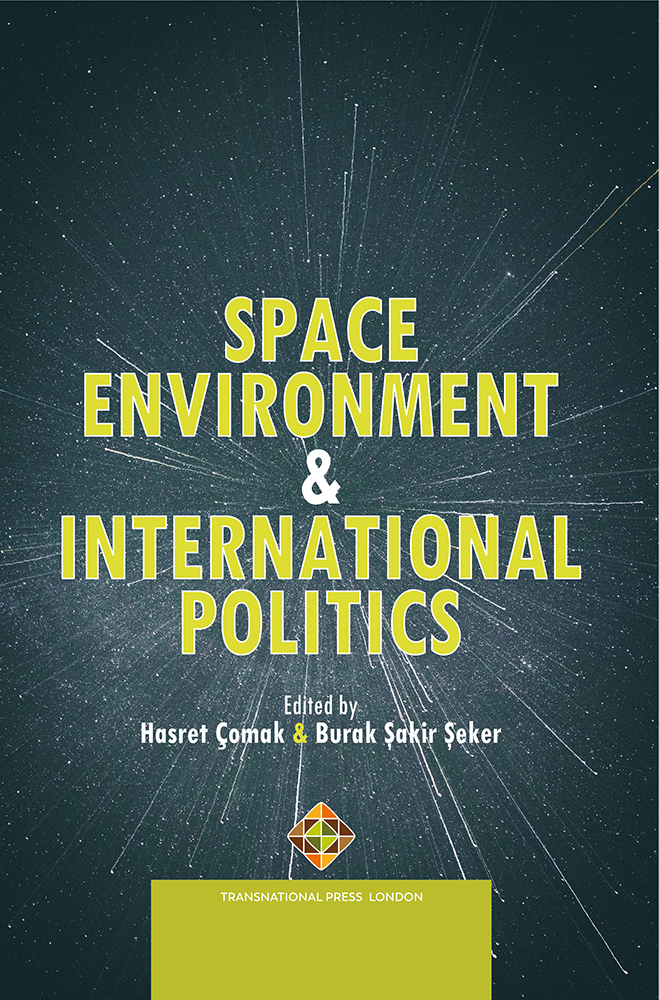
After space and universal scientific research gained, space debris has also become an important question in the scientific world. The continued practice of disposing of space debris on Earth in areas such as the space craft cemetery has raised environmental concerns.
More...
It is important to evaluate the analysis of the policies determined by NATO regarding space in the period from the year 2000, which can be defined as the 2000s, to the present day of 2023, from the perspective of the international developments of the period.
More...
Today, satellites orbiting in space are of great importance for all international actors. The Union of Soviet Socialist Republics (USSR) was the first country to initiate and materialize human space travel. In addition, the USSR, together with the United States of America (USA), was one of the most decisive actors in the space race. Having lost its superpower status after the USSR, the Russian Federation (RF) today wants to exist as a great power in the international system. Space and space security are of great importance for the great power policy of the RF. One reason for this is the weakening of the RF's capabilities in the field of space and space security, as in every field after the USSR. In contrast, the US has continued to increase its capabilities in the field of space and space security. The RF is trying to balance the US in the field of space and space security within its current capabilities. On the other hand, being the leading state in space and space security contributes to the great power policy of the RF in terms of prestige as well as political and economic spheres. However, today, space security is also of great importance for the security of the RF.
More...
In 1961, after four years of efforts and rocket tests of the Union of Soviet Socialist Republics (USSR), the first manned spacecraft called Sputnik, under the command of Cosmonaut Yuri Gagarin, successfully orbited the earth, and this event has created a major security concern in the United States of America (USA). This situation has showed that the USSR had the capacity to stage a targeted missile attack on the USA. In the face of this threat, the US administrations started a very costly space race with the belief that they should defeat the USSR in space exploration and that getting ahead in the said race is of key importance for world leadership. In this context, John F. Kennedy, who was elected President in 1961, used the following expressions in his speech known as ‘Moon Speech’: ‘Those who came before us made certain that this country rode the first waves of the industrial revolutions, the first waves of modern invention, and the first wave of nuclear power, and this generation does not intend to founder in the backwash of the coming age of space. We mean to be a part of it we mean to lead it. For the eyes of the world now look into space, to the moon and to the planets beyond, and we have vowed that we shall not see it governed by a hostile flag of conquest, but by a banner of freedom and peace. We have vowed that we shall not see space filled with weapons of mass destruction, but with instruments of knowledge and understanding. We set sail on this new sea because there is new knowledge to be gained, and new rights to be won, and they must be won and used for the progress of all people. For space science, like nuclear science and all technology, has no conscience of its own. Whether it will become a force for good or ill depends on man, and only if the United States occupies a position of pre-eminence can we help decide whether this new ocean will be a sea of peace or a new terrifying theater of war... We choose to go to the moon. We cannot guarantee that we will be the first nation to reach the moon, but if we are not successful in making this effort, we will certainly be the last.’
More...
The phenomenon of flying has always attracted humans . The three-dimensional character of flight, its speed, and the world's transition into a ‘global village’ owing to ever more economical air travel are all elements that give aviation and air transport a high level of public awareness . Outer space activities, likewise aviation, have attracted human fascination and continue to do so. However, outer space commercial activities, on the other hand, are in their infancy.
More...
While the spacefaring nations benefit from the blessings of space, they also encounter many security problems in the increasingly crowded space environment. These security problems threaten the sustainability of operations in space. Space security threats concern all people and institutions that have space-based services, as well as spacefaring nations. Space security problems must be discussed, examined, and resolved globally by all space stakeholders in this direction. The approaches of the spacefaring nations to the space security problems are interpreted from the national space policies and strategies. National space policies of countries are shaped in line with their national interests. National space policies also affect the discussions on space security problems in the international stage and prevent the achievement of global space security solutions. For these reasons, the perspectives of the spacefaring nations on space security issues will be examined and what needs to be done to ensure space security and maintain space security will be discussed.
More...
On November 4, 1957, the Soviet Union launched Sputnik 1 into space. This historical event, in addition to being a turning point in political, military, technological and scientific developments, also marked the beginning of the space race to be experienced between the United States (US) and the Soviet Union. The ongoing effort to establish dominance between the two superpowers continued until the collapse of the Soviet Union and the end of the Cold War. The mutual agreements signed between the USSR and the US later expanded with the emergence of space law within the United Nations and the integration of international actors into the process.
More...
Although the term ‘New Space’ came into being around the turn of the millennium, it has been the second half of the last decade that the term has really caught on. There is now a journal specifically named New Space , covering a wide range of happenings in space technology and the related business environment. The term ‘New Space’ covers the proliferation of nano and micro satellites, small satellite launchers, space tourism, space mining including the asteroids and the Moon, as well as the new entrants into the field, which include public and private institutions, large and small universities, startup companies and countries, with no previous space experience.
More...
The blue sky, space, stars have always been an inquiry of wonder and/or fear in the process and development of human civilization. With the effort to make sense of what people are curious about and cannot know, in time astrology has led to astrophysics and contemporary space engineering and design technologies. On the other hand, cities and other built forms of environments have been witnessed and experienced only on earth surface and limited its development to physical parameters of our world. Parallel to the data processing and technical engineering solutions of the disciplines engaged in habitat planning and design, the satellites that compile visual and physical data following the given tasks in space, and after 2000, autonomous or controlled laboratory robots began to make the unknown known. And humanity is moving from a one-planet civilization to the construction of a multi-planet horizon.
More...